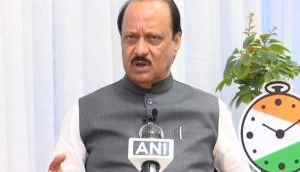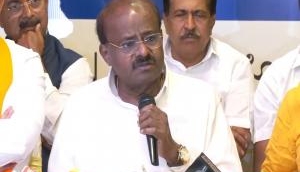
In the backdrop of the massive protests led by the students at the Jawaharlal Nehru University, wherein left parties have been indiscriminately termed 'anti-national', it becomes imperative to remember the political struggle these parties went through.
Instead of dismissing the communist party, we decided to look at the various facets of India's anti-colonial struggle, a struggle that the party fought in.
- Since its formation in 1920 the Party pledged to work for the establishment of a socialist society in India, free from class exploitation and social oppression. The communists were the first in the country to raise the demand for complete independence and put forward a resolution for this in the Ahmedabad session of the Indian National Congress in 1921.
The communists, while demanding complete independence, also stressed the need for giving a fundamental content to the slogan of Poorna Swaraj through a definite programme for social and economic change by including such vital questions as abolition of landlordism, end to feudal domination and elimination of caste oppression.
They were responsible in founding of the progressive, cultural and literary organisations like the Progressive Writers' Association and the Indian People's Theatre Association. It played a major role in the foundation of All India Students Federation.
The party made steady progress in mobilising people for complete independence and for fundamental social change inspite of being declared as illegal soon after its formation.
Indian communists have contributed immensely towards the cause of national liberation, in defence of the interests of the working class, peasantry and other toiling millions. They were able to attract the overwhelming majority of revolutionaries in India.
At the outset, the communists devoted their efforts to the task of organising workers in trade unions, peasants in the Kisan Sabha, students in their unions and other sections in their respective mass organisations.
- On the occasion of the 1940 Ramgarh Congress Conference CPI released a declaration called Proletarian Path, which sought to utilise the weakened state of the British Empire in the time of war and gave a call for general strike, no-tax, no-rent policies and mobilising for an armed revolutionary uprising. The National Executive of the CSP assembled at Ramgarh took a decision that all communists were expelled from CSP.







![BJP's Kapil Mishra recreates Shankar Mahadevan’s ‘Breathless’ song to highlight Delhi pollution [WATCH] BJP's Kapil Mishra recreates Shankar Mahadevan’s ‘Breathless’ song to highlight Delhi pollution [WATCH]](https://images.catchnews.com/upload/2022/11/03/kapil-mishra_240884_300x172.png)

![Anupam Kher shares pictures of his toned body on 67th birthday [MUST SEE] Anupam Kher shares pictures of his toned body on 67th birthday [MUST SEE]](https://images.catchnews.com/upload/2022/03/07/Anupam_kher_231145_300x172.jpg)






